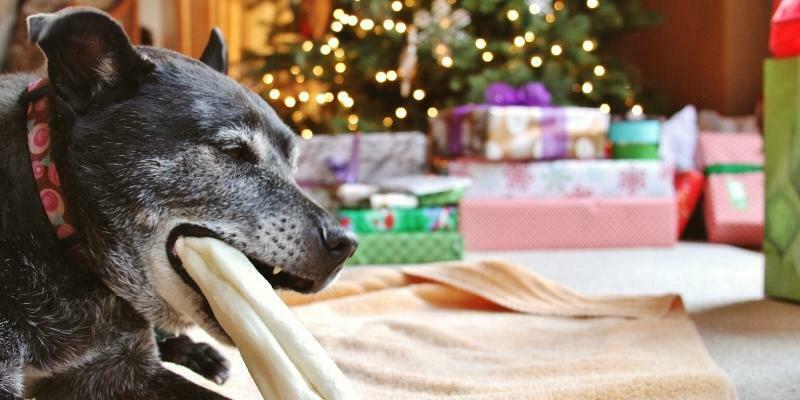The dangers of bones!
Whilst it is really tempting to share tasty Christmas roast leftovers with your pet, it’s safest to immediately dispose of any cooked turkey or ham bone remnants into a large, secure outdoor bin, where your pet can’t access them. Why?
Firstly, because dogs and cats are often surprisingly good at performing cheeky raids of indoor bins or exposed bin-bags! And secondly, because at any time of the year, cooked bones unfortunately pose a high risk of harm to your pet.
Why are cooked bones more dangerous for pets?
When cooked, bones become particularly hard and brittle, and therefore frequently break into sharp shards when chewed. These sharp bone shards can cause severe injuries to your pet’s mouth or gut.
Additionally, chewing harder cooked bone can cause fractures of your pet’s teeth, which can be painful and lead to tooth root abscesses.
Are raw bones safe for pets?
Chewing raw bones can help with dental hygiene maintenance, and can give pets good mental stimulation. However, even raw bones can cause issues in some pets, such as:
Choking (if the pet chews off a small piece of bone that lodges in their throat)
Gut upset due to harmful bacterial contamination, particularly with raw chicken carcasses
The development of severe constipation in pets who consume a large volume of bones
Some dogs demonstrating possessive-aggressive behaviour towards humans or other animals if approached whilst chewing a bone
For this reason, our friendly team would also be happy to discuss recommendations on dog and cat dental diets, chew toys and chew treats designed to maintain dental hygiene and keep your pet busy, without many of the potential dangers associated with bone chewing.
This Christmas, don’t let your pet get mis-”sled” by the temptation of cooked bones!

